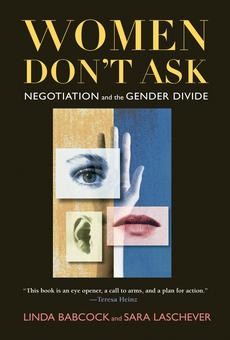
Apr
KIU Department of Clinical Legal Education Participates in the National Court Open Day April 2024
April 19, 2024, 11:26 am
 Collins Kakwezi
Collins Kakwezi

By Rogers Wanambwa
KIU, Main Campus - Over the past few weeks, I've been holding some conversations with three female friends about their work environment and it appeared they were not contented with some issues ranging from their pay cheque to the amount of workload they are taking on (more specifically being given).
Apparently, they are not happy with what's taking place and when I suggested that they take this up with their employers, they all flat out refused.
This made me curious to know why and I ended up finding this book that talks about reasons why and how such women can muster the courage to speak up for themselves.
Can women learn to recognize more hidden opportunities in their circumstances, and can the world learn to accept women who ask? Can women overcome their anxiety and find effective ways to negotiate— and can people stop taking a harder line when they negotiate with women? Luckily, the answer to all of these questions is yes. When I saw these questions, I knew I had found the right book.
Many women face a similar situation and the book “Women Don't Ask” tries to find out how big of a problem this is.
“Take the following example. Suppose that at age 22 an equally qualified man and woman receive job offers for $25,000 a year. The man negotiates and gets his offer raised to $30,000. The woman does not negotiate and accepts the job for $25,000. Even if each of them receives identical 3 percent raises every year throughout their careers (which is unlikely, given their different propensity to negotiate and other research showing that women’s achievements tend to be undervalued), by the time they reach age 60 the gap between their salaries will have widened to more than $15,000 a year, with the man earning $92,243 and the woman only $76,870. While that may not seem like an enormous spread, remember that the man will have been making more all along, with his extra earnings over the 38 years totaling $361,171. If the man had simply banked the difference every year in a savings account earning 3 percent interest, by age 60 he would have $568,834 more than the woman—enough to underwrite a comfortable retirement nest egg, purchase a second home, or pay for the college education of a few children. This is an enormous ‘return on investment’ for a one-time negotiation,” the authors say in the book.
This book is important for women and consequently men to read and understand where this deficiency in self assertion in women comes from, how big of a problem it is for humanity and businesses and how it can be overcame.
Suffice to say, after reading it, I recommended it to the three women mentioned earlier.
Picture credit: Perlego
Kampala International University,
Box 20000, Ggaba Road, Kansanga, Kampala